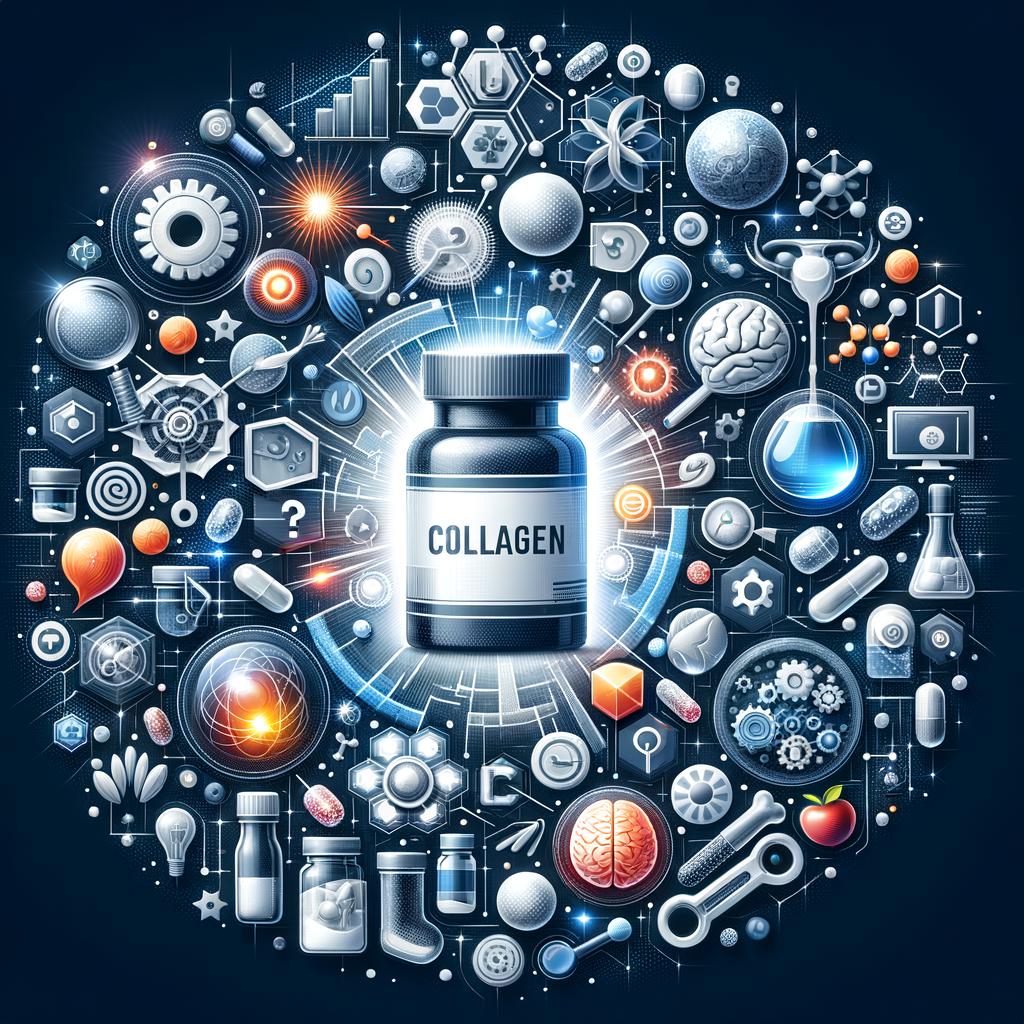
Introduction
So, what really are collagen supplements made from? To cut to the chase, collagen supplements are primarily derived from animal sources, with some plant-based alternatives also emerging. Collaborating with this core principle, we’ll explore all the colorful complexities that ride along with collagen production. From bovine hides to fish scales, marine algae to genetically modified yeast and bacteria — our journey through the complexities of collagen is just as unique as the supplement itself.
Decode What Are Collagen Supplements Made From
Collagen supplements are primarily made from hydrolyzed collagen, which is collagen that has been broken down into smaller peptides for better absorption. The sources of this collagen typically include bovine (cow), porcine (pig), chicken, and marine (fish) tissues. These sources are rich in collagen, particularly types I and III, which are most beneficial for skin, bone, and joint health.
Sources of Collagen Supplements: Animal Origins
At the root of it all, collagen supplements are essentially a powerhouse of protein, the building blocks of which are amino acids like proline, glycine, and hydroxyproline. In this context, animal-based products such as skin, bone, and connective tissues are the main sources for making collagen supplements.
Bovine Collagen
From the wild world of livestock, collagen supplements frequently explore the bounty of bovine. Indeed, cow hides are a primary source for crafting collagen supplements. Generally, this bovine collagen is classified as type I or III, known for promoting skin elasticity and joint health.
Marine Collagen: Embracing the Deep Blue
The world of marine creatures adds another layer of untapped potential to the collagen mix. Predominantly sourced from fish scales and skin, marine collagen is one alternative to its bovine counterpart.
Piscine Potential
As the star of this marine show, fish-sourced collagen flaunts its unique advantage. Essentially, marine collagen, especially from wild fish, is considered as a promising option due, in part, to its high bioavailability, meaning it’s easily absorbed into the bloodstream.
Venturing into the Vegetable Kingdom: Plant-based Collagen
For those navigating on the vegan voyage or anyone with a fish or meat allergy, a new horizon dawns with promise - plant-based collagen supplements. However, plants by themselves do not produce collagen. So how are these vegan products crafted?
Plant-based Innovations
Well, hold on to your hats because we’re delving into the wonders of genetic engineering. Plant-based collagen supplements are usually derived from modified yeast and bacteria. In a nutshell, these unicellular powerhouses are empowered with the ability to produce building blocks of collagen.
Conclusion
So, what ingredients concoct the collagen supplement cocktail? From bovine hides to fish scales, and from genetically modified yeast and bacteria, the world of collagen supplements is both diverse and innovative. There’s a nostalgic charm about the tradition of using natural resources to amplify health and beauty, but it’s equally invigorating to witness the strides we’re making in plant-based collagen production. Stay curious and you’ll find the perfect collagen source that harmonizes with your unique health journey.
Frequently Asked Questions
1. Are collagen supplements plant-based?
Not usually. Collagen is typically derived from animal products like cow hides or fish. However, some plant-based alternatives, made using genetically modified yeast and bacteria, exist on the market.
2. Where does marine collagen come from?
Marine collagen primarily comes from fish, more specifically from their skin and scales, which are rich in collagen proteins.
3. Are collagen supplements vegan?
Traditional collagen supplements aren’t vegan as they come from animal products. But, vegan collagen supplements are available, manufactured by applying genetic engineering techniques on yeast and bacteria to produce the required proteins.
4. What type of collagen is in supplements?
The collagen used in supplements often comes in the form of hydrolyzed Type I and Type III collagen, which is most beneficial for skin and bone health.
5. What are the benefits of plant-based collagen?
Plant-based collagen provides an alternative for those who follow vegan diets or are allergic to main sources of collagen like fish and cow. They have the same benefits as traditional collagen, promoting skin health, bones and joint wellness.


